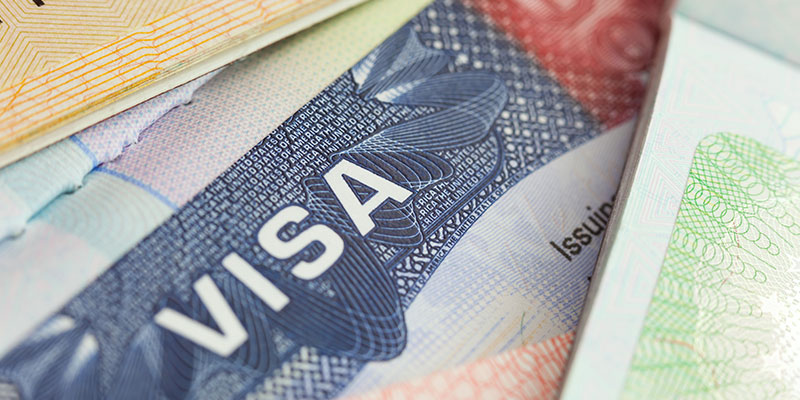
In this blog, we have discussed the following topics under Consular Processing:
Before go for the further reading on this topic, give a glance at Consular Processing vs COS for more details.
All foreigners wishing to enter the US require a visa. The "Visa Stamp" is the seal that denotes legal permission to enter the US. In Consular Processing, visa applicants must go to the US Consulate to get their passports stamped with the US Visa Stamp. Using this visa stamp, applicants can enter the US and obtain a particular US visa status.
Generally, for Consular Processing you need to follow certain steps such as:
If you want an H1B visa, or if you are already an H1B holder, you can choose Consular Processing if:
Consular Processing for H1B Transfer if I-94 Expires
A consular processing request is made when you have joined a new H1B employer, and your old employer's H1B extension pending request receives an RFE after your I-94 has expired. Before your H1B transfer can be approved with a new I-94, you may receive a Request For Evidence asking you to wait for your old employer's bridge extension decision.
Under these circumstances, employers often decide to apply for H1B consular processing instead of awaiting the pending old employer's extension since they may take their own time to respond to extension RFEs.
How to Travel Abroad when H1B Extension or COS is Pending
Please note that the USCIS will abandon your H1B Extension or COS if you travel while your application is yet to be decided upon. Under these circumstances, getting approval for your H1B is possible only under Consular Processing. Therefore, you will need an H1B visa stamp to enter the US.
Given below are the steps in H1B Visa Consular Processing:
1: File Form I-140 with the USCIS with a request for Consular Processing.
2: The USCIS approves Form I-140 and sends the approval notice to State Department's National Visa Centre (NVC).
3: If your visa number becomes available, the NVC will send the fee bill to you or your immigration attorney for the immigrant visa process.
4: When the fee is processed, the NVC will send an Instruction packet (Packet 3), which comprises the forms and documents you should submit.
5: You must complete the following before attending the visa interview:
6: Schedule your appointment for the visa interview with the US Consulate or US Embassy in your home country.
7: Pay the visa application fee, which is non-refundable, and get ready for your interview.
8: Attend your visa interview.
If you are opting for an H1B visa Consular Processing, you must know how it will benefit you with acquiring your H1B visa.
Also Read: Consular processing vs COS
Consular Processing comes with the following advantages:
1. You do not prove that you have maintained H1B status if you live in the United States and have applied for Consular Processing. You can file for the same only if you are applying for a Change of Status from F1 or H4 to H1B by entering the lottery process for the first time.
2. You can decide on your visa interview and when to start working with your H1B status.
3. An approval from USCIS with consular processing will change your status immediately. An I-94 will be issued without delay.
4. Consular Processing is ideal if you are applying for H1B Transfer after I-94 expiry, especially in situations with an H1B Request for Evidence and denial.
5. You do not have any restrictions for Travel, you are free to travel anytime during the period, when your H1B is pending with USCIS.
Drawbacks of Consular Processing
It is also wise to know the drawbacks that come with Consular Processing.
To Conclude
Visit TechFetch H1B to gather more information about consular processing and H1B visa process.
**Disclaimer: All H1B processes are subject to change. Kindly refer to the USCIS website for the latest updates.